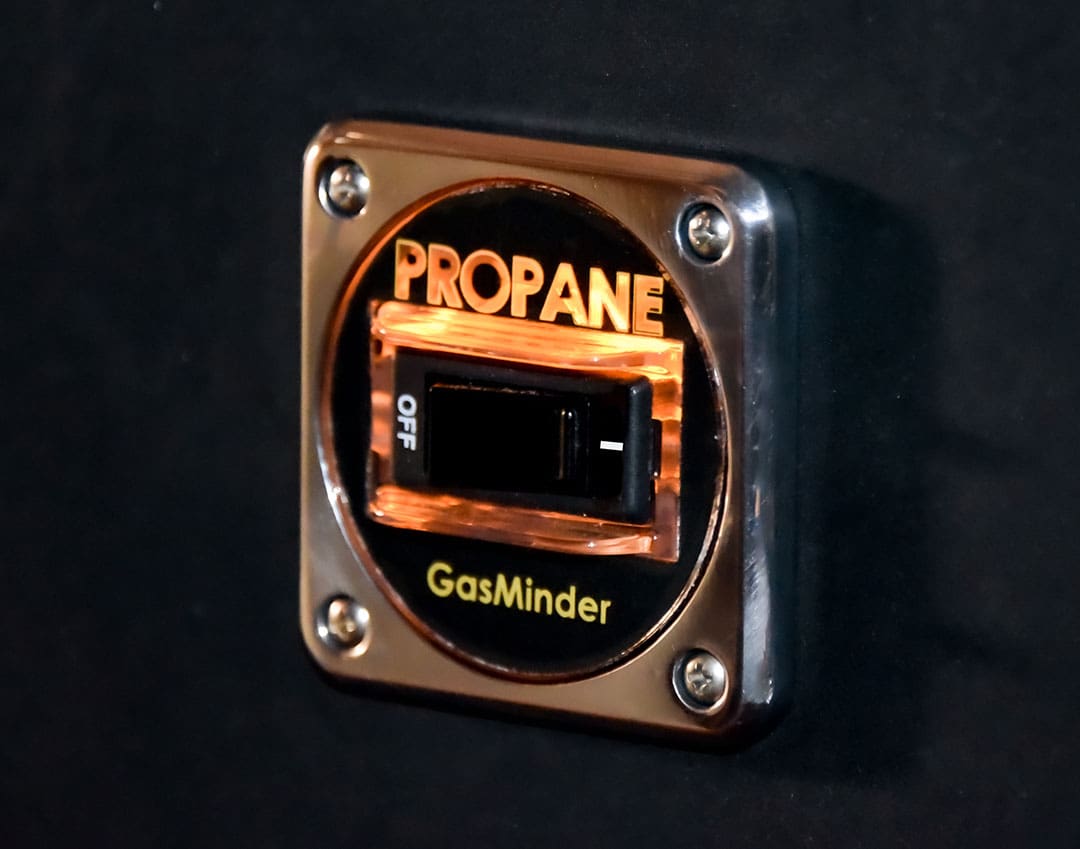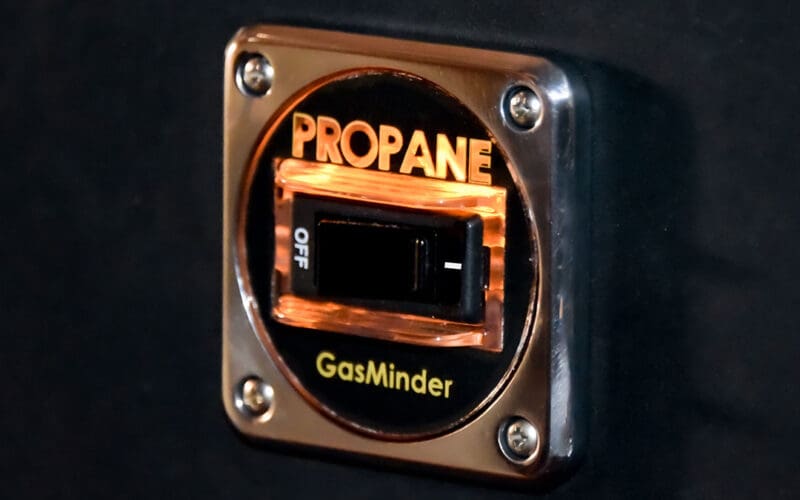
A galley stove is standard equipment on a voyaging boat. The heating fuel for this stove is often propane, which is easy to handle and to use. For all its benefits, however, propane does have one property that makes it a potential fire or explosion danger: It is heavier than air, and gas from a leak will sink to the lowest point and accumulate. Any type of spark can set it off. It’s important to have a properly designed and maintained system that complies with ABYC standards to avert any problems. Tim Litvin, a sailor and inventor in San Diego, has developed a new type of gas control switch called the GasMinder that aims to further increase the safety of onboard propane systems.
One of the safety elements in a propane setup is a switch in the galley that operates a solenoid valve in the gas line to control gas flow. There are different types of solenoids, but a common type uses an electromagnetic coil surrounding a magnetically-reactive central plunger. The plunger is pushed down by a spring and so without any electricity to the solenoid the valve remains closed. When the coil is energized, however, a magnetic field is produced. The plunger reacts to the field and is drawn into the coil. This opens the valve and gas can flow. Cut off the electricity to the coil and the magnetic field collapses and the spring once again pushes the plunger down to close the valve. So, unlike a mechanical valve, like a through hull, which must be physically accessed to operate, a solenoid-operated valve can be placed in a remote space like the propane locker where the gas bottles are stored and supplied with electricity by a pair of wires. This remote capability allows you to control gas flow from the propane locker and lessens the risk of gas getting into the below-deck living area. A simple switch in the galley can control the energizing/de-energizing of the solenoid.
Should the crew member using the stove forget to flip off the switch the solenoid valve will remain energized and gas can flow. This raises the possibility, for example, that a valve on the stove might get turned accidentally, just enough to release gas, but not enough to engage the igniter. Another problem with solenoid switches is that they use power, up to 10 watts, and they get hot if they remain energized for an extended period.
A safety measure to help users know if there is a leak is the use of a smelly compound called ethyl mercaptan that is added to the gas to make leak detection easier. You can also install a gas detector device that alarms when it detects gas.
The best safety device is for the crew member using the stove to turn off the solenoid switch when they’re done cooking. But mistakes do happen.
It was a desire to not rely solely on a fume detector as a backup that inspired Tim Litvin to develop his own device for ensuring gas safety. He lives aboard his Cheoy Lee Offshore 40 and his day job is designing optomechanical devices for lasers, telescopes, microscopes and other optical equipment. His idea for gas safety is a new type of switch called the GasMinder. It looks like most gas solenoid switches, but it has two features designed to prompt you to turn it off when you’re done. There’s a light on the switch that flashes the word “Propane” in yellow every few seconds. This serves as a reminder that the solenoid valve is open. As a second reminder, the unit beeps every 20 minutes.
“As a liveaboard I use propane multiple time a day,” Litvin said. “My partner would say, ‘you forgot the propane again.’ So I decided to put my project engineering skills to work.”
“The GasMinder is intended as a direct replacement for a standard propane solenoid switch,” Litvin explained in an email. “The only other somewhat-related product I’ve seen is a timer that shuts-off the solenoid after a period: I considered that strategy and decided it was the wrong response to the problem, because 1) it could shut off automatically before cooking was done, and 2) a person could start to rely on it and forget to also turn off the gas valves on the stove.
“Aside from that, the marine propane industry has relied on gas detector alarms: also a good idea, but not a replacement for a GasMinder.”
GasMinder is not yet available for purchase, as Litvin is doing an IndieGoGo prelaunch (igg.me/at/GasMinder) to get a feeling for its market potential. “At this stage I need to see if there’s sufficient interest to invest in injection molds for production quantities.”
Should Litvin garner enough interest he will go ahead and, he hopes, make gas systems on boats just a bit safer. n

